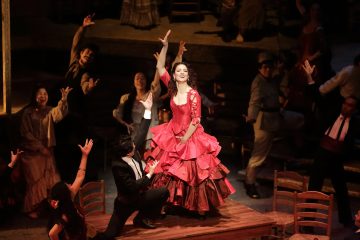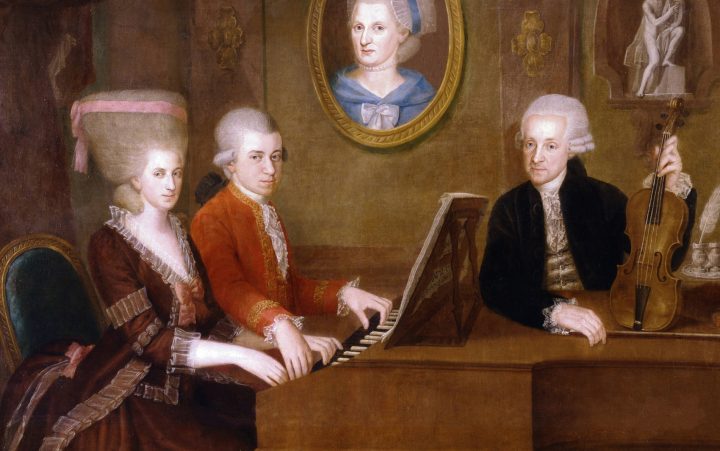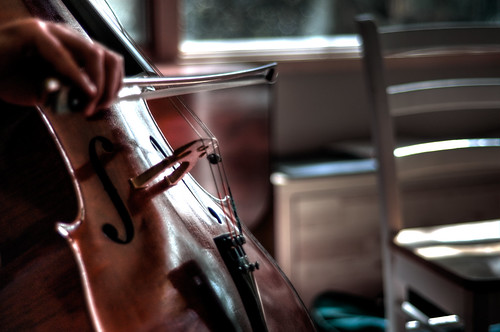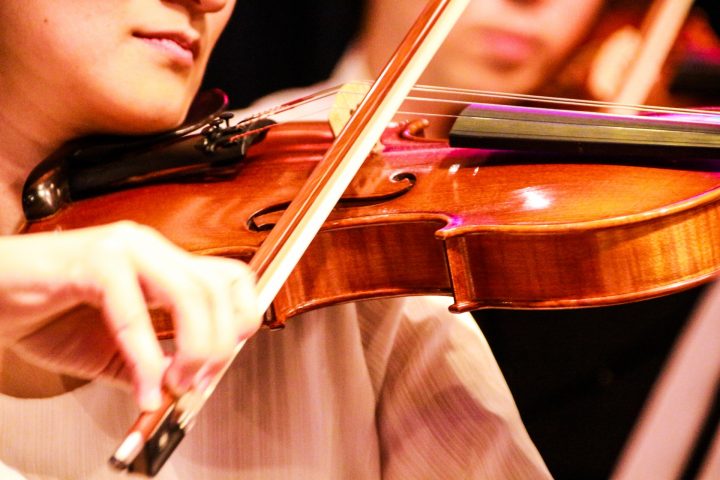"Keio Wagner Society Orchestra"
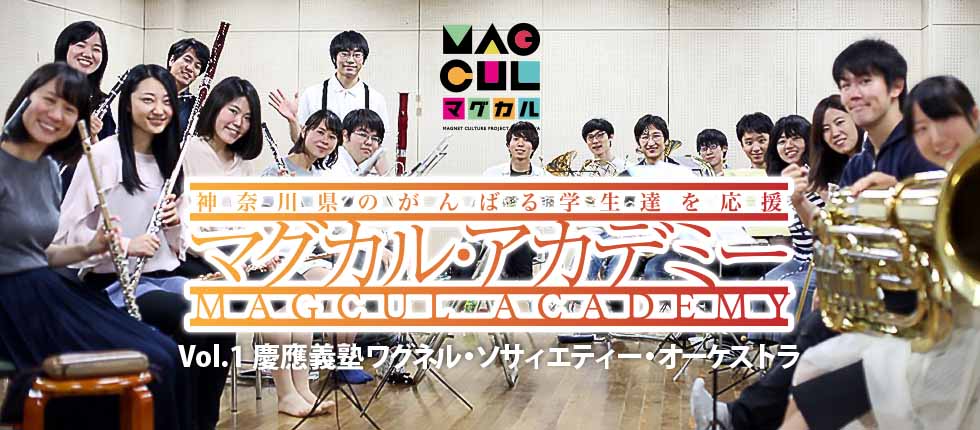
Japan's oldest amateur student orchestra "Wagner" (Kohoku-ku, Yokohama)
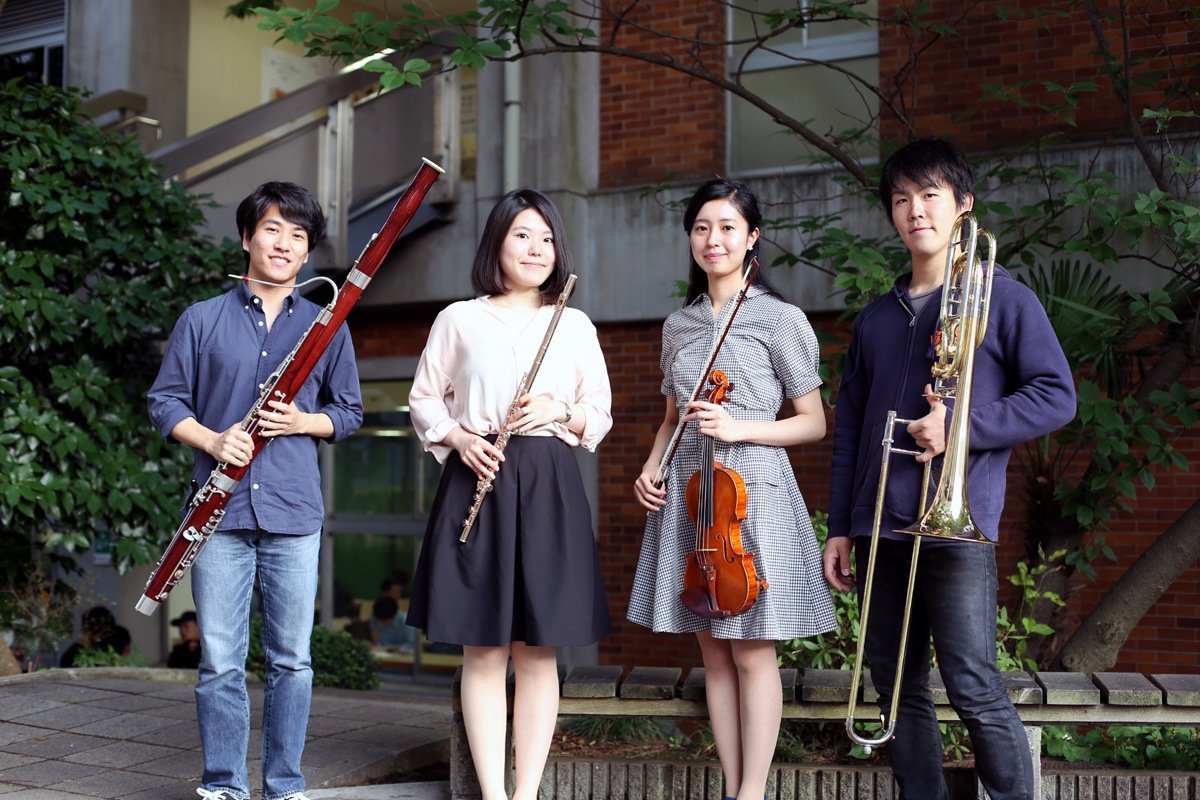
(From left in photo) Next bassoon section leader Nishibori Kensuke (3rd year, Faculty of Law, Department of Political Science, bassoon), concert tour manager Yoneda Mao (3rd year, Faculty of Science and Engineering, Chemistry, flute), next concert mistress Ukezono Mariko (3rd year, Faculty of Law, Department of Political Science, violin), student leader Komiya Ryuichi (3rd year, Faculty of Law, Department of Political Science, bass trombone)
What kind of organization is Wagner and what activities does it carry out?
Komiya-san: Wagner is mostly organized by students from Keio University. A distinctive feature of Wagner is that all members participate in creating one concert. Not only as performers, but all administrative work for concerts is also done by students. Although we are student-led, we do not forget that we exist thanks to the support of many people, and we try to value the connections between people.
In addition to three regular concerts a year, we also hold domestic and international concert tours every other year, so that members can experience major events every two years. In addition, we are invited to perform in various forms, such as as an orchestra, chamber music, or brass ensemble, at elementary school music classes and local events.
How many members are there in your group? And how do you practice?
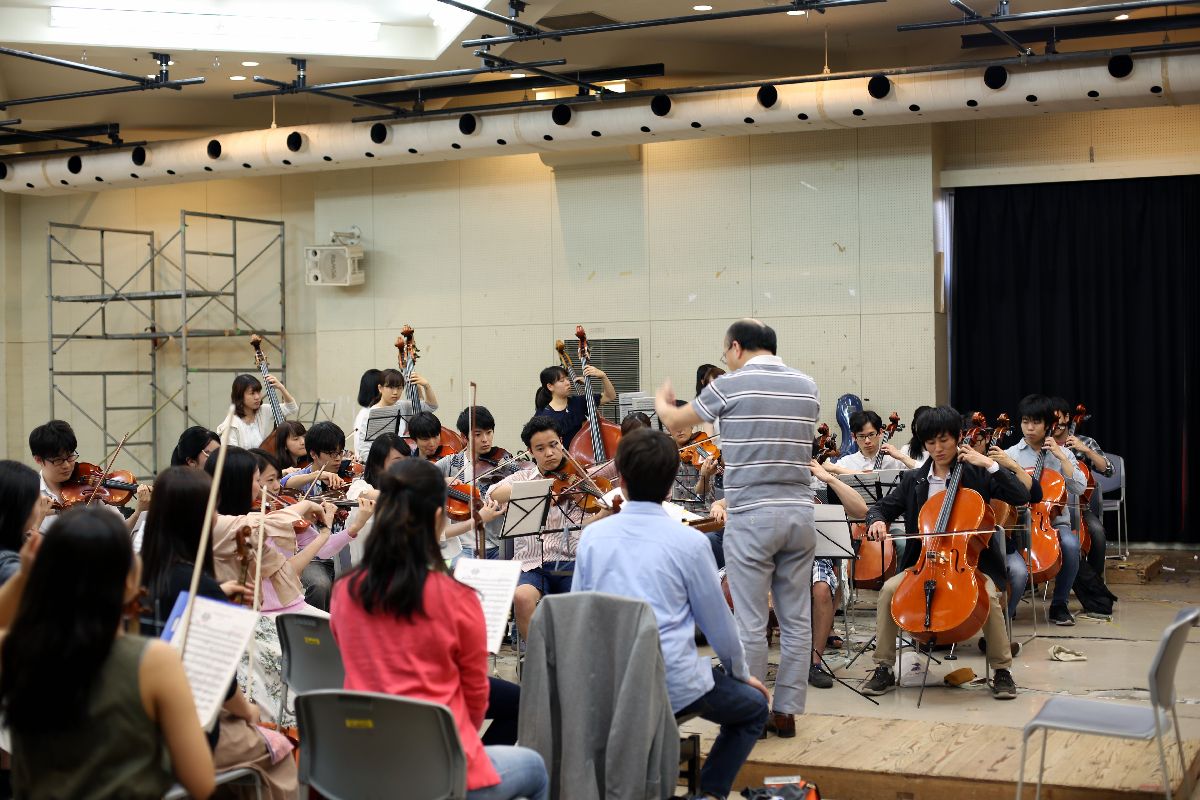
(Practice scene)
Komiya-san: We have about 180 members and practice at Keio University's Hiyoshi Campus. We practice three days a week for about three hours from 6:00 pm to 9:00 pm, but many members feel that this is not enough and practice on their own every day.
Will all 180 members be able to perform at the concert?
Komiya: At some universities, there are orchestras where you have almost no opportunities to perform even if you are enrolled for four years, but at Wagner, no matter how much the level of the members may differ, we have decided that each member will perform at least one piece at each regular concert. I think there is a very strong sense of cooperation and working hard together.
What do you find rewarding about running Wagner?
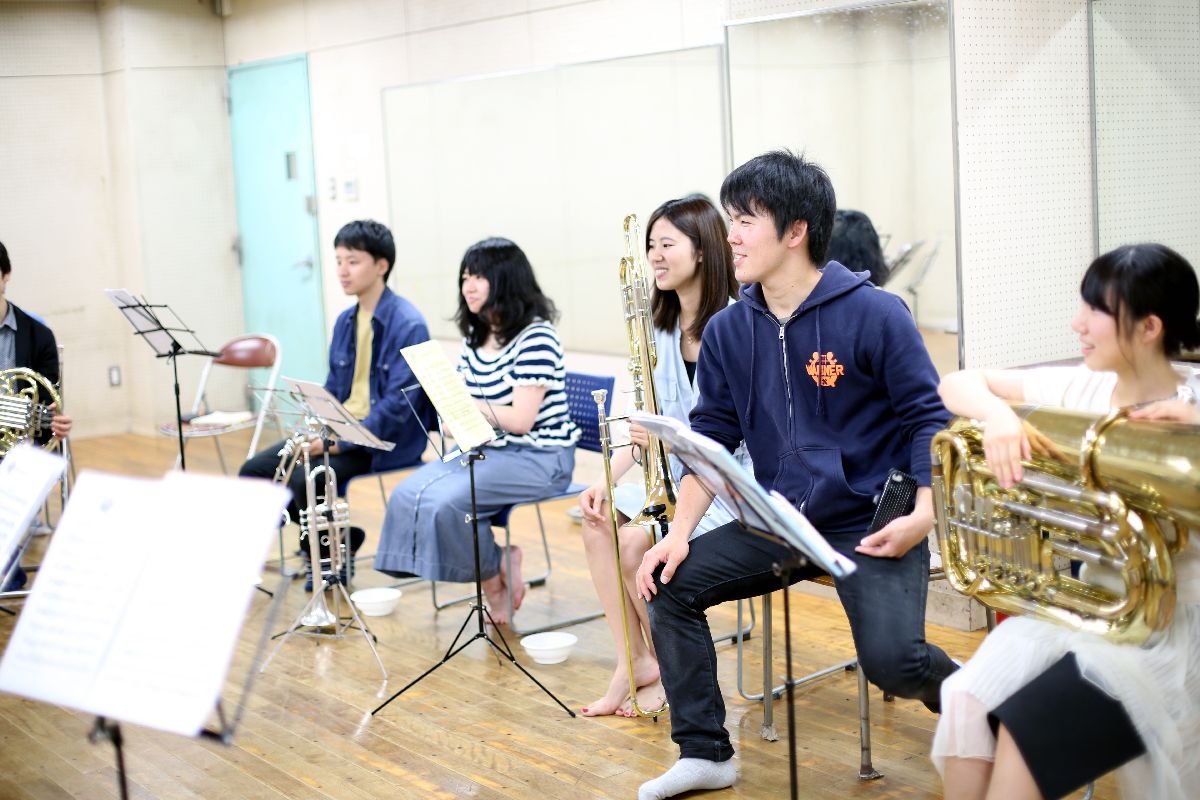
(Mr. Komiya, the student leader, giving instructions to the members)
Komiya: Each member has their own job to do. It's where you can really feel that each of those tasks contributes to creating a great concert. Of course, reserving the venue and thinking about practice schedules are important, but it's also important to design the program and work as entrance staff to welcome visitors. We also go to familiar ramen shops and izakayas near the university to ask them to put up flyers for the concert. When we think about how everything comes together to create a concert, it makes us want to give our best performance when we're performing. It's rewarding to see everything have a positive effect in that way.
Did you all play instruments originally? What led you to join Wagner?
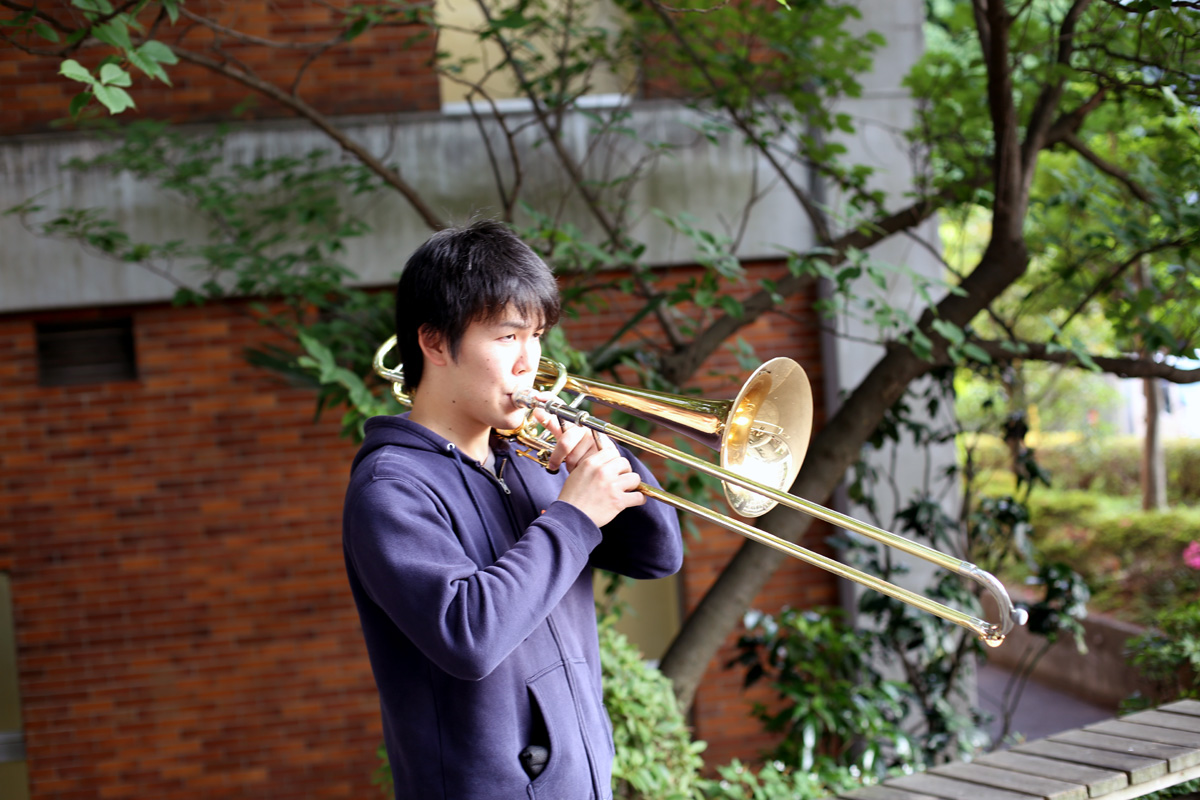
(Komiya playing the bass trombone)
Komiya: One of the main reasons I joined Wagner was the high quality of their concerts. I had known about Wagner since I was in high school and often attended their concerts. It is unusual for a student orchestra to hold three concerts a year, and I was moved by the performances every time, so I naturally began to want to play an instrument here someday. In junior high school, I played the tuba, a large instrument, and in high school, I played the tenor trombone, an instrument that is one size smaller than the bass trombone, but considering the vacant position at Wagner, I decided to switch to the bass trombone and join the orchestra.
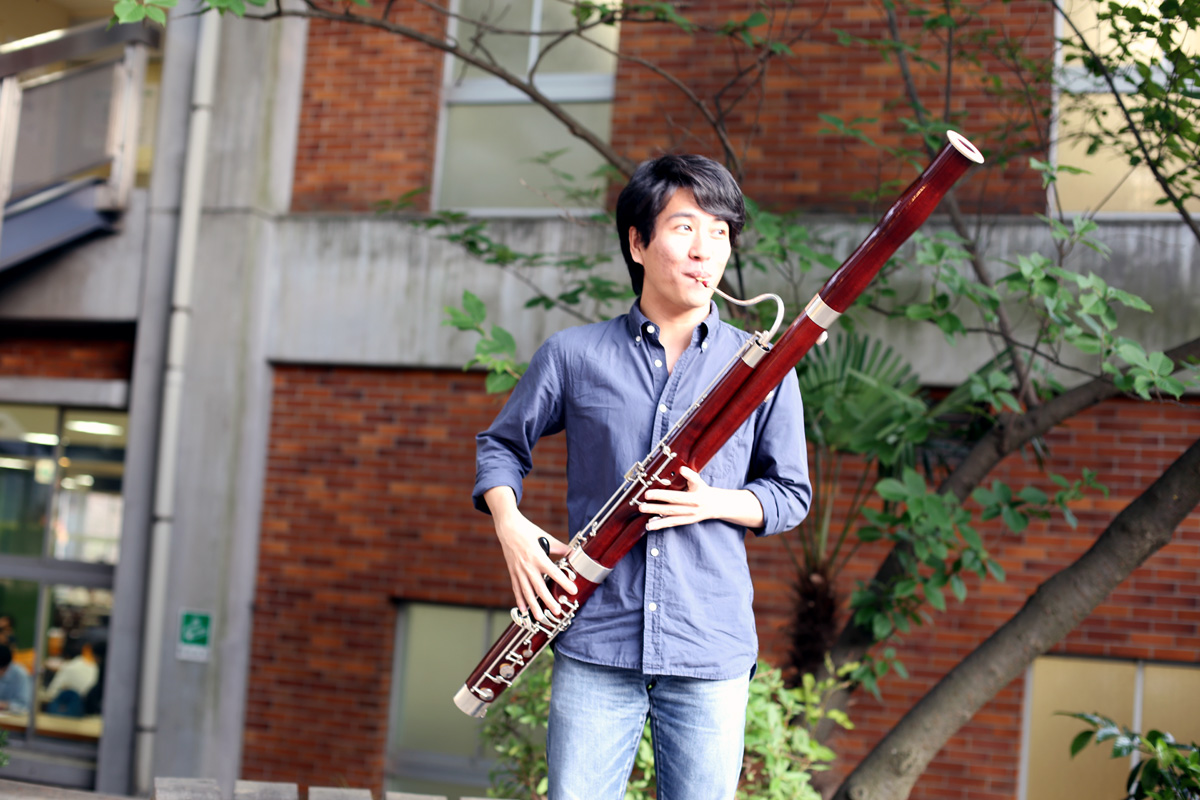
Nishibori playing the bassoon)
Nishibori-san: I started playing the bassoon when I was in the first year of junior high school. I joined Wagner because I felt that it was the best environment for me to devote myself to music among all the music clubs at Keio. I also had a strong desire to go on a concert tour.
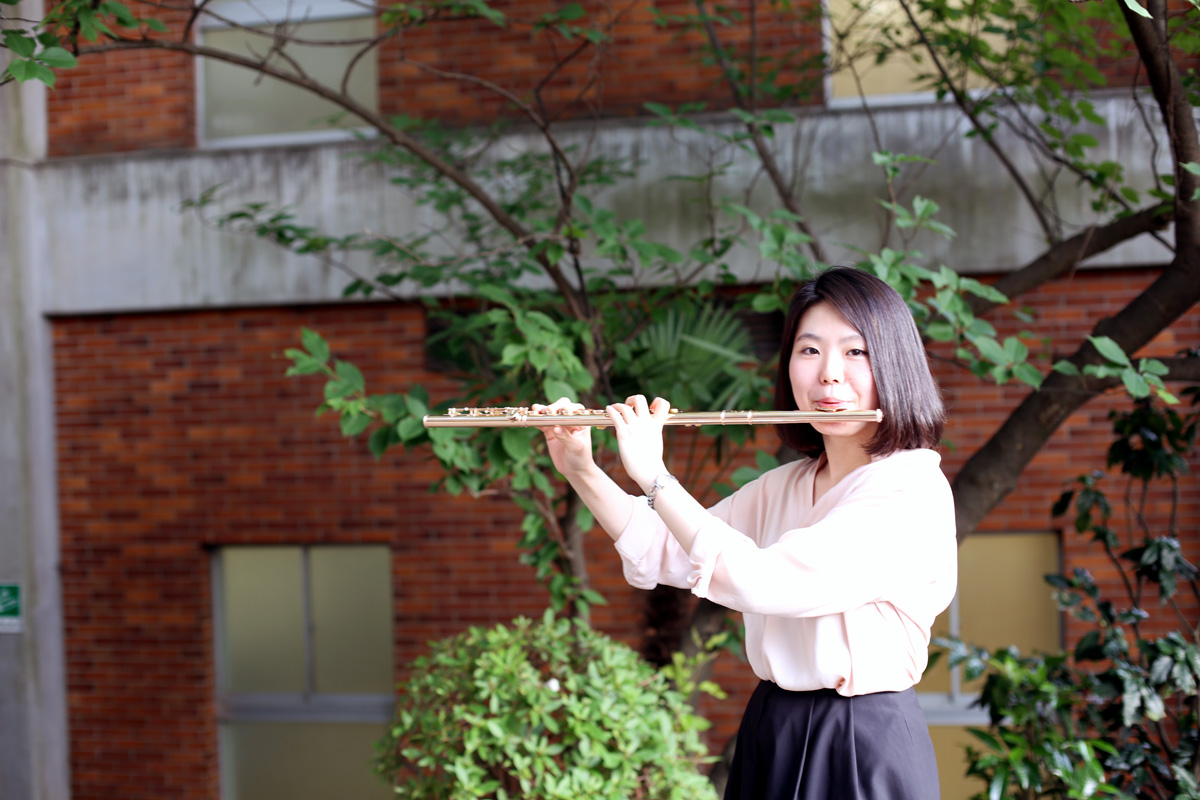
(Yoneda playing the flute)
Yoneda-san: I started playing the flute when I was in the second grade of elementary school. I had been playing in an orchestra since junior high school, so I wanted to continue playing when I entered university. I also thought it would be amazing to be able to go on a concert tour to Europe, so I joined!
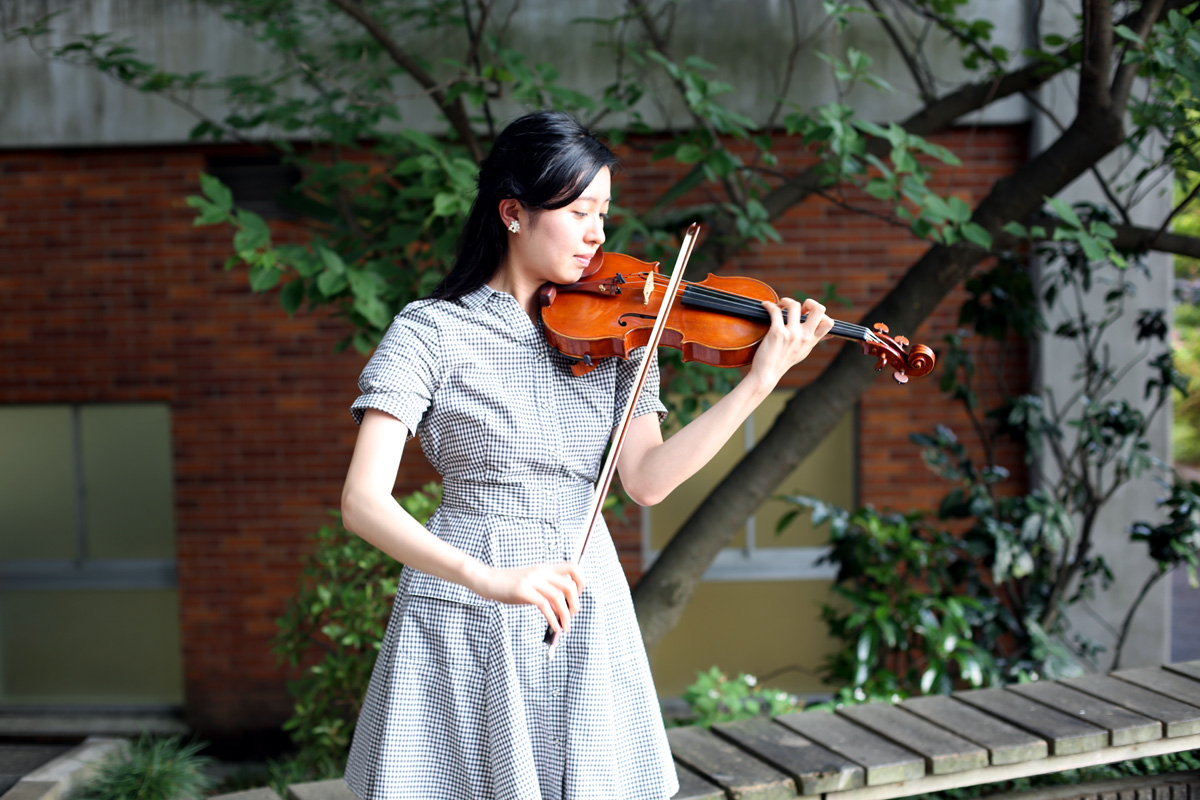
(Ukezono playing the violin)
Ukezono: I have been playing the violin since I was four years old. I joined Wagner after being invited by a senior colleague.
Please tell us your thoughts about the regular concert on June 30th.
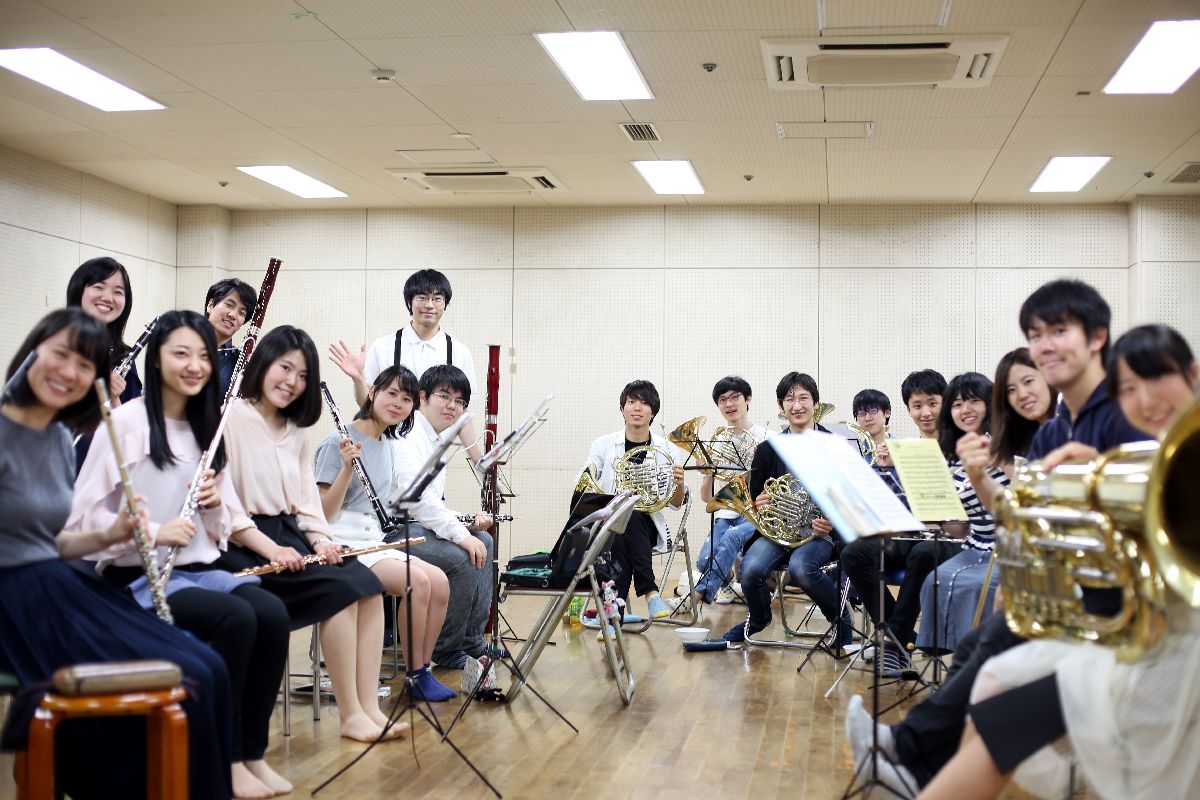
Yoneda: The first piece, "Glazunov Festive Overture," is a gorgeous, bright, and passionate piece. Wagner has new, fresh members since April, so I'd like to perform it with a good sense of tension and get off to a good start.
Ukezono: The second piece, "Poulenc's Ballet Suite Doe," is a French piece that is not often performed by Wagner, so many people may be hearing it for the first time. I think it will be a fresh experience for you.
Nishibori: The third piece, "Tchaikovsky Symphony No. 5 in E minor," is a famous piece that everyone knows, but it also has a dark side to it. I want to play it with a good understanding of the music and with our own feelings, while finding a good balance and not relying on momentum.
Wagner's upcoming activities
・222nd Regular Concert
Saturday, October 28, 2017 Evening performance Sumida Triphony Hall Main Hall Conductor: Kentaro Kawase
Program: Rachmaninoff / Symphony No. 2 in E minor, etc.
・223rd Regular Concert
February 11, 2018 (Sunday) Evening Performance Suntory Hall Large Hall Conductor: Masahiko Okochi
Program: Brahms / Piano Quartet No. 1, Schoenberg Orchestral Arrangement, etc.
・2017 Overseas Performance Trip
February 25, 2018 (Sunday) Prague Performance Smetana Hall
February 28th (Wed) Munich performance Herculessaal March 4th (Sun) Vienna performance Musikverein March 9th (Fri) Budapest performance Congress Hall
From the Magcal editorial department
I was surprised to hear that all 180 members of the orchestra will be going to four European cities for concerts starting next February. Apparently, the students will be taking the lead in planning the tour and arranging the venues. The students' eyes sparkled as they said they were "just looking forward to it" to be able to go on a concert tour as part of the high-level and traditional Wagner. The rehearsal was a friendly and harmonious scene, but the moment the teacher began to conduct, the atmosphere became so tense that people hesitated to even breathe. It was clear to see how this quick response would help them balance their studies and music.
